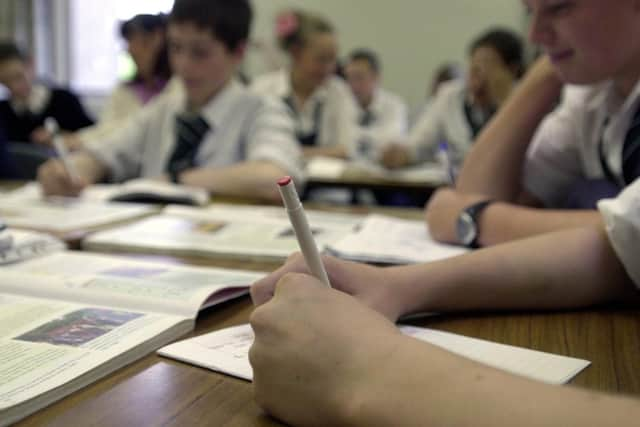How parents can help alleviate mental health worries for children - Matt Buttery
With the number of children referred to emergency mental healthcare in England soaring by more than 50 per cent over the last three years, many children are failing to get the support they urgently need.
In Yorkshire, the statistics are no different. Despite 86 per cent of pupils aged 10 and 11 in North Yorkshire stating they felt worried ‘most days’, a growing number of children in the region cannot access mental health support. Figures published last year from three of the region's Integrated Care Boards suggested that 201,985 children were waiting for support with their mental health.
Advertisement
Hide AdAdvertisement
Hide AdWith children waiting for far too long to get seen, more and more parents find themselves supporting and managing their children's mental health concerns. Parents are hugely influential in helping children to develop strong coping skills, manage fears or worries, and build the resilience needed to bounce back from life’s ups and downs.


As we approach exam season evidence based programmes such as Fear-less Triple P - designed for parents of children experiencing anxiety - could help.
Triple P’s programme has been proven to help reduce anxiety, even in children who have been clinically diagnosed.
Alongside accessing evidence-based parenting programmes, parents can focus on a few simple strategies, to support their child's mental health and manage their nerves and emotions.
Advertisement
Hide AdAdvertisement
Hide AdIt is important that children know their parents are there for them if they need them. Encouraging open communication, and if they seem stressed, asking if they would like to talk through revision together or, more broadly, discuss their concerns will let them know you care. Children are more likely to discuss their worries, apprehensions and troubles if open communication is established early on.
Some ways to create open dialogue could be asking children how they are feeling about school, how they are making friends or managing their workloads. If a child has particular concerns, help them think of possible solutions.
Building resilience will help children cope with the pressure of exams, increased workloads and other matters that are making them anxious. This will set them up well to tackle challenges they will likely face in later life.
Parents can help their children build resilience by breaking down goals into more achievable tasks, for them to work towards during periods of heightened stress. When they complete these tasks it is equally important to celebrate their success, doing so will help them build self confidence.
Advertisement
Hide AdAdvertisement
Hide AdChildren learn a great deal about how to manage their behaviour and how to manage difficult situations from their parents. By demonstrating calm and resilient behaviour, parents can have a positive influence on their children's ability to cope with adversity.
As we approach stressful periods like exam season, parents can ensure they stay positive and calm when discussing these topics. Avoid using phrases such as 'you must be nervous' as this may risk accidentally making an otherwise calm child more stressed.
Matt Buttery is chief executive of Triple P UK and Ireland.
Comment Guidelines
National World encourages reader discussion on our stories. User feedback, insights and back-and-forth exchanges add a rich layer of context to reporting. Please review our Community Guidelines before commenting.